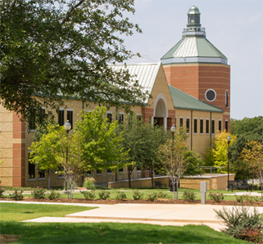B.S. Psychology, Emphasis in School Guidance
A degree in psychology with an emphasis in school guidance is designed for individuals seeking a counseling career in a school setting. This degree combines courses in psychology and elementary education. The goal is to provide a strong foundation in psychology while preparing individuals to teach. School counselors in the State of Texas need two years of teaching experience and a master’s degree in school counseling prior to licensure and employment as a school counselor. Our program helps prepare students for both counseling and teaching with this composite degree.
The program prepares individuals for the three Texas exams required for an early childhood – 6th grade (EC-6) teaching credential. The exams include the Core Subjects, Pedagogy and Professional Responsibilities (PPR), and the Science of Teaching Reading (STR).
Career Field
Many Psychology with school guidance graduates currently work as:
- Educational Specialists
- School Counselors
- Speech Therapists
- Teachers
Job Outlook
A number of institutions are looking to hire graduates with a bachelor's degree in psychology. Training in critical thinking, interpersonal communications, and human behavior make graduates in this field highly versatile and employable.
Careers
With a B.S. in Psychology with an Emphasis in School Guidance, you will be prepared to seek a counseling position in a school. With combined courses in psychology and elementary education, you’ll have a strong foundation in psychology while also preparing individuals to teach.
Professions
- School Counselor
- School Social Worker
- Mental Health Counselor
- Psychologist
- Guidance Counselor
- Teacher
8%
Projected employment growth of School and Career Counselors between 2018-2028




| Required Cognates | ||
| Item # | Title | Credits |
| POLS 211 | National and Texas Constitutions | 3 |
| MATH 141 | Introduction to Probability and Statistics | 3 |
| Sub-Total Credits | 6 | |
| Total Credits: | 81 | |
Educational Qualifications
Students must complete all coursework, field experience, and student teaching in preparation for teacher licensure and completion of the degree. Two years of elementary teaching experience and a master’s degree are required for licensure as a school counselor.
Students planning to teach at tertiary level in psychology programs must have at least one area of expertise; a doctorate degree is preferred. A terminal degree (the highest available degree given in an academic discipline) also has the advantage of preparing students to be highly qualified.




